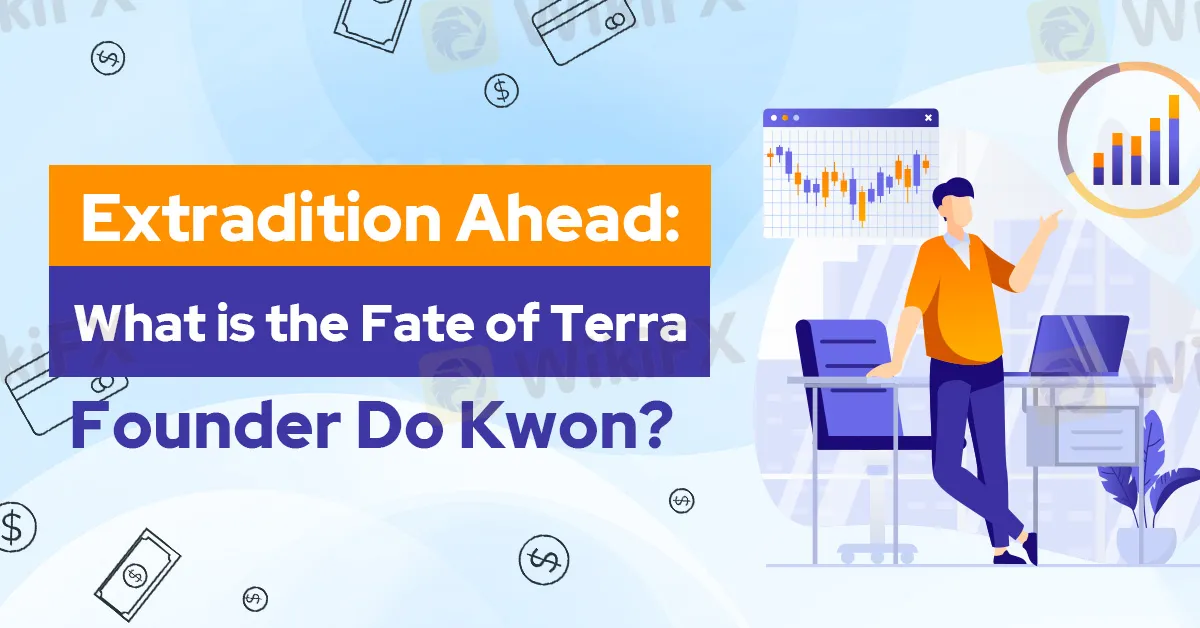简体中文
繁體中文
English
Pусский
日本語
ภาษาไทย
Tiếng Việt
Bahasa Indonesia
Español
हिन्दी
Filippiiniläinen
Français
Deutsch
Português
Türkçe
한국어
العربية
Extradition Ahead: What is the Fate of Terra Founder Do Kwon?
Abstract:The extradition proceedings of crypto entrepreneur Do Kwon, facing fraud allegations across the United States and South Korea, escalate as Montenegro's High Court approves, marking a pivotal moment in this transnational legal battle.

Montenegro‘s High Court has given the go-ahead for the extradition of cryptocurrency entrepreneur Do Kwon, embroiled in fraud allegations in the United States and South Korea. This pivotal decision, disclosed on the court's website, now awaits the country’s justice minister to determine the destination for Kwons extradition.
Do Kwon, recognized for his involvement in the Terraform Labs affair, encountered legal entanglements due to the use of falsified passports. Arrested alongside an associate with counterfeit travel documents, Kwon received a four-month prison sentence from Montenegrin authorities. The discovery of Belgian passports and electronic devices further complicated his legal standing.
This development arrives on the heels of the Higher Court of Podgorica affirming a previous verdict from June, deeming the four-month imprisonment as fitting punishment for Kwons transgression.

Kwon, the Terraform Labs founder, and his colleague Han Chang-Joon were apprehended in Montenegro after attempting to depart using fake Costa Rican passports. During testimony, Kwon asserted belief in the legitimacy of the passports.
Facing allegations related to the collapse of terraUSD (UST) stablecoin and the Terra ecosystem, Kwon had been sought by various law enforcement agencies, regulators, and Interpol.
Montenegro, situated south of Serbia, emerged as a potential location for Kwon, wanted in his home country for charges involving capital market manipulation. Despite his denial of wrongdoing, Kwon, in hiding since May 2022, argues that capital-market laws dont extend to crypto assets.
While Kwon has agreed to extradition to South Korea through an expedited process, the decision ultimately lies with Montenegros justice minister due to multiple countries seeking his extradition.
Kwon's legal team has yet to address the U.S. charges. However, Terraform Labs spokesperson intends to challenge the U.S. allegations, labeling them as “misguided” and “deeply flawed.”
Currently serving time at Spuž prison near Podgorica, Kwon awaits final word on his extradition, slated to occur after completing his sentence for the forged document offenses.
This unfolding narrative stems from the monumental $40 billion collapse of the Terra ecosystem in May 2022, causing substantial financial losses and reverberations across the cryptocurrency sphere. The legal outcome of this extradition could establish a precedent in handling transnational cryptocurrency offenses under international law.

Disclaimer:
The views in this article only represent the author's personal views, and do not constitute investment advice on this platform. This platform does not guarantee the accuracy, completeness and timeliness of the information in the article, and will not be liable for any loss caused by the use of or reliance on the information in the article.
Read more

Bitcoin in 2025: The Opportunities and Challenges Ahead
Bitcoin experienced a transformative year in 2024, with its value surpassing $100,000 and attracting attention from institutional investors, retail traders, and governments alike. This growth was driven by milestones such as the approval of spot bitcoin ETFs and increasing adoption by major financial institutions. As 2025 begins, bitcoin’s position as a cornerstone of the digital financial ecosystem is stronger than ever.

DICT Pushes for Stronger Cyber Laws to Address Evolving Scams
The DICT is advocating for stronger cybercrime laws to tackle the growing and evolving threat of online scams in the Philippines.

European Crypto Market Shakeup: Banking Limits, Regulatory Pressures, and Exchange Survival
Portugal’s BiG bank blocks fiat transfers to crypto platforms. European crypto platforms face mounting challenges amid regulatory changes.

Top 3 U.S. Crypto Policies to Watch in 2025: What to Expect
Get ready for 2025! From stablecoin rules to SEC vs. CFTC oversight and a bold Bitcoin reserve plan, here’s what to watch in U.S. crypto policies.
WikiFX Broker
Latest News
High-Potential Investments: Top 10 Stocks to Watch in 2025
US Dollar Insights: Key FX Trends You Need to Know
Why Is Nvidia Making Headlines Everywhere Today?
Discover How Your Trading Personality Shapes Success
FINRA Charges UBS $1.1 Million for a Decade of False Trade Confirmations
Bitcoin in 2025: The Opportunities and Challenges Ahead
BI Apprehends Japanese Scam Leader in Manila
Big News! UK 30-Year Bond Yields Soar to 25-Year High!
SQUARED FINANCIAL: Your Friend or Foe?
Join the Event & Level Up Your Forex Journey
Currency Calculator






